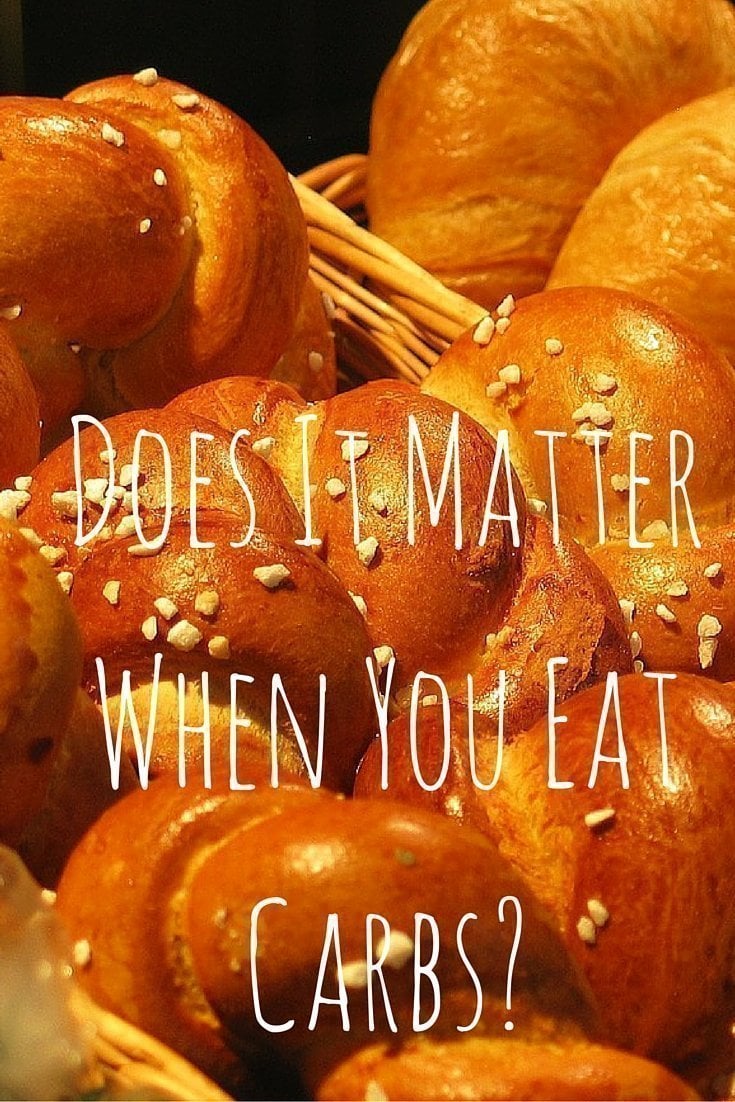When You Eat Carbs 101
We’ve discussed whether eating carbs before bed will cause you to gain weight before but does it matter in general when you eat carbs (apart from after a workout)? Enough said, let’s dive in!
Seriously, does it matter when you eat carbs?
In the field of health, there are several things that many people think they “know”. For instance, many people “know” that you have to lift heavy weights, perform cardio on an empty stomach, and eat a lot of protein to get jacked. One of these “rules” is to not eat carbs at night.
Why can you have spaghetti for lunch, but if you eat it after 8 pm it will stick to your waistline?
According to the “experts”, your evening metabolism slows, your body does not need as much energy, and if you do eat them earlier in the day you can burn them off. It sounds really logical (like every myth) but science repeatedly tells us that our bodies are not subject to logic and follow their own biological laws.

Let’s first see whether metabolism slows down during sleep. According to research, energy consumption actually fell by about 35 percent during sleep. But it is only in the early hours while in deep sleep. In the end, it turns out that there is no difference in energy expenditure at rest during the day and at night…
Here is the first rule of the fat-burning kitchen program by Mike Geary: “Do not eat carbs at night because your metabolism slows down!” Yes, but during the day you spend more energy because you’re an active engine. That’s a fact. Almost all of us spend more energy throughout the day, compared to tonight. But when you consume carbohydrates, regardless of the hour, three things may occur:
- Be used as instant energy
- Be stored as glycogen in muscle and liver
- Be converted and stored as fat. Nobody wants that, but the key point here is #2
The body will store carbohydrates as glycogen, no matter when you eat them if your glycogen stores are low. This depends on their total consumption for the day (as well as previous days) or if they have trained or engaged in physical activity.
Speaking of workouts, I have heard many times: “Do not eat carbohydrates over 2 hours after a workout because it’s too late to get any advantages.” The body needs carbohydrates after an intense workout to fill spent glycogen and improve recovery by releasing insulin.
As long as you don’t overdo it, the carbs you eat after an intense workout are less likely to be turned to fat (compared to other times).
How you use carbohydrates (whether your body stores them more as glycogen or turns them into fat) depends mostly on your insulin sensitivity. The higher the sensitivity of receptors on muscle cells to insulin, the better it will absorb carbohydrates as glycogen. A relationship between percent body fat and insulin sensitivity is inversely proportional. The more fat you have then the less sensitive your sensitivity to insulin – meaning you may want to cut back on carbs until your sensitivity increases or there is a decrease in percent fat.
Likewise, according to the “experts”, your morning insulin sensitivity is better than night, which seems like a strong trump card against the evening carbohydrate intake. And so, I agree. But the only reason is that your first meal (breakfast) is consumed after hours of fasting (sleep).
Can you lose weight by eating carbs at night?
The only difference was that the control group ate carbohydrates several times during the day, while the experimental group ate them in the evening. After six months, the experimental group not only lost more weight (-11.6 kg against -9 kg) but also more fat (7% against -5.1%) and reported a greater reduction in waist circumference (-11.7 cm versus -9.4 cm).
Moreover, people in the experimental group reported being less hungry during the diet.
And that’s not all, the experimental group established higher levels of adiponectin – a hormone that binds to better insulin sensitivity and increased fat loss. The levels of leptin (the hormone of “saturation”) were also slightly higher.
It also reported lower levels of LDL (“bad”) cholesterol and higher HDL (“good”) cholesterol. The latter apparently derives from the improvement in insulin sensitivity and a greater decrease in fat.
Wrap-Up
“OK, great! I can eat carbs at night”. If that’s your reaction, then you have not understood the meaning of everything here. Let’s start with the study.
It turns out that for the purposes of weight loss, it is better to have a rich carbohydrate diet. The main points to remember are:
Eat carbs throughout the day. The actual number depends on the amount of exercise and current body state – so it’s not totally dependent on when you eat carbs.
Consumption of carbohydrates in the evening will depend on your total amount for the day and when you exercise. For example, if you exercise in the morning, it will be better to eat them after your workout.
- Natural Remedies for Pregnancy Back Pain Relief - September 22, 2016
- Does It Matter When to Eat Carbs? - March 29, 2016